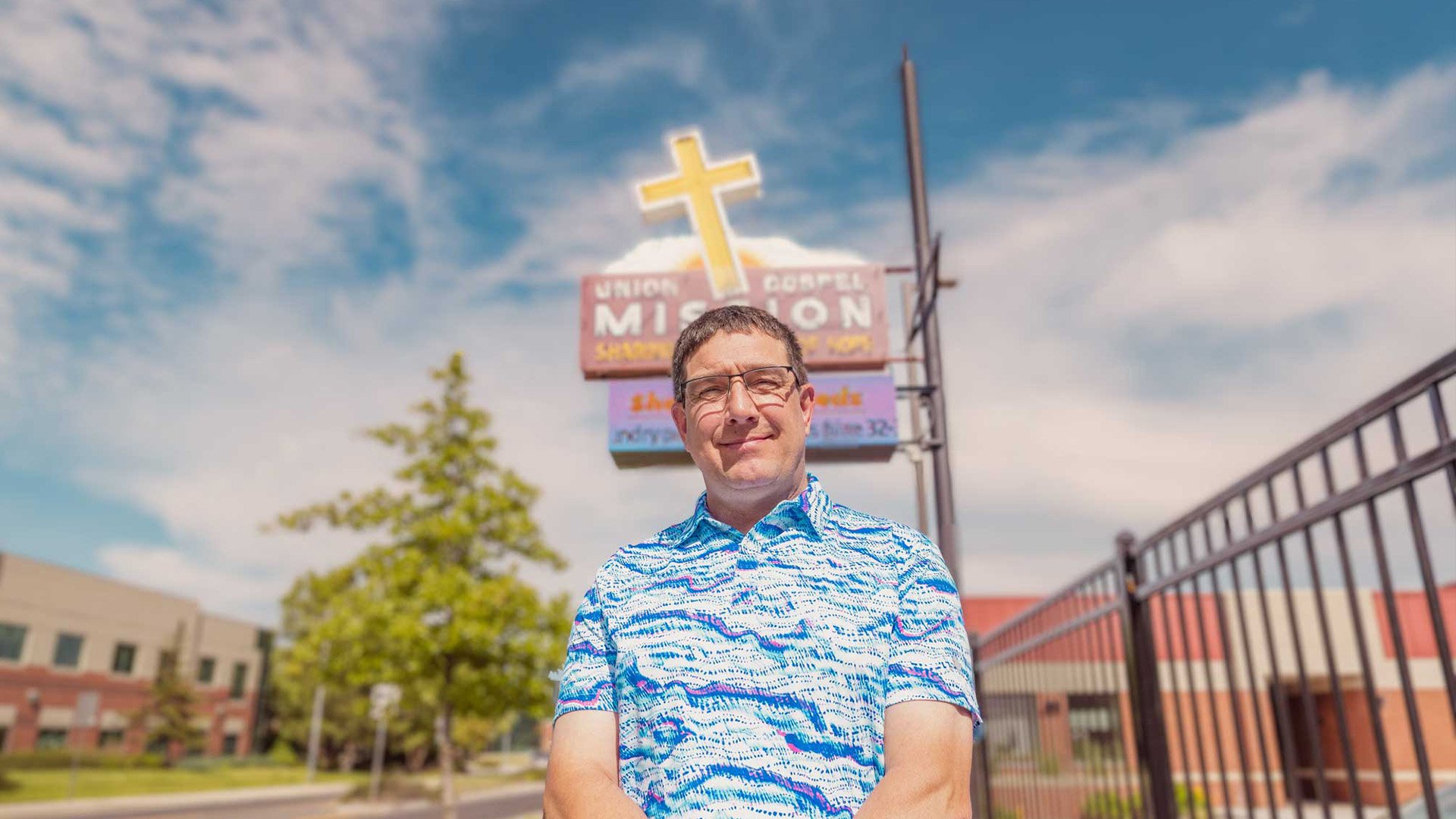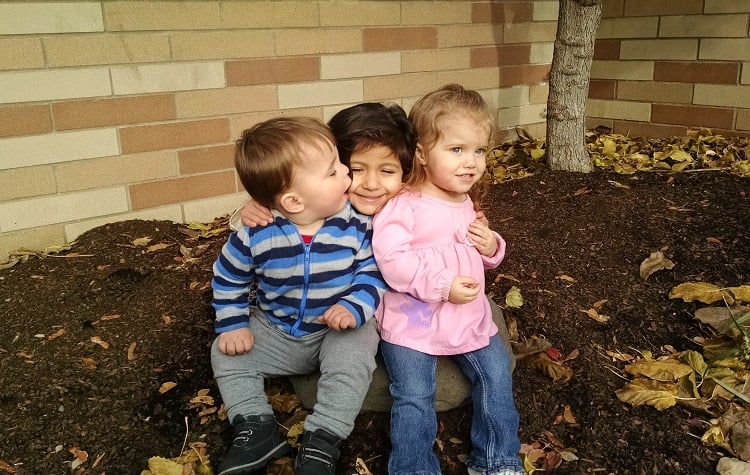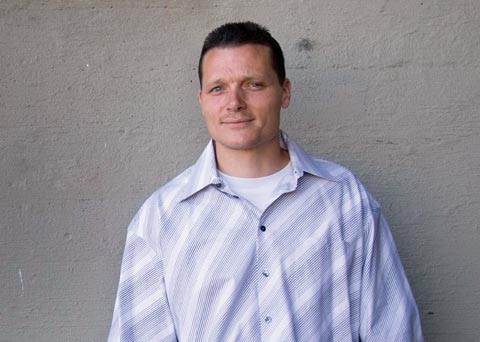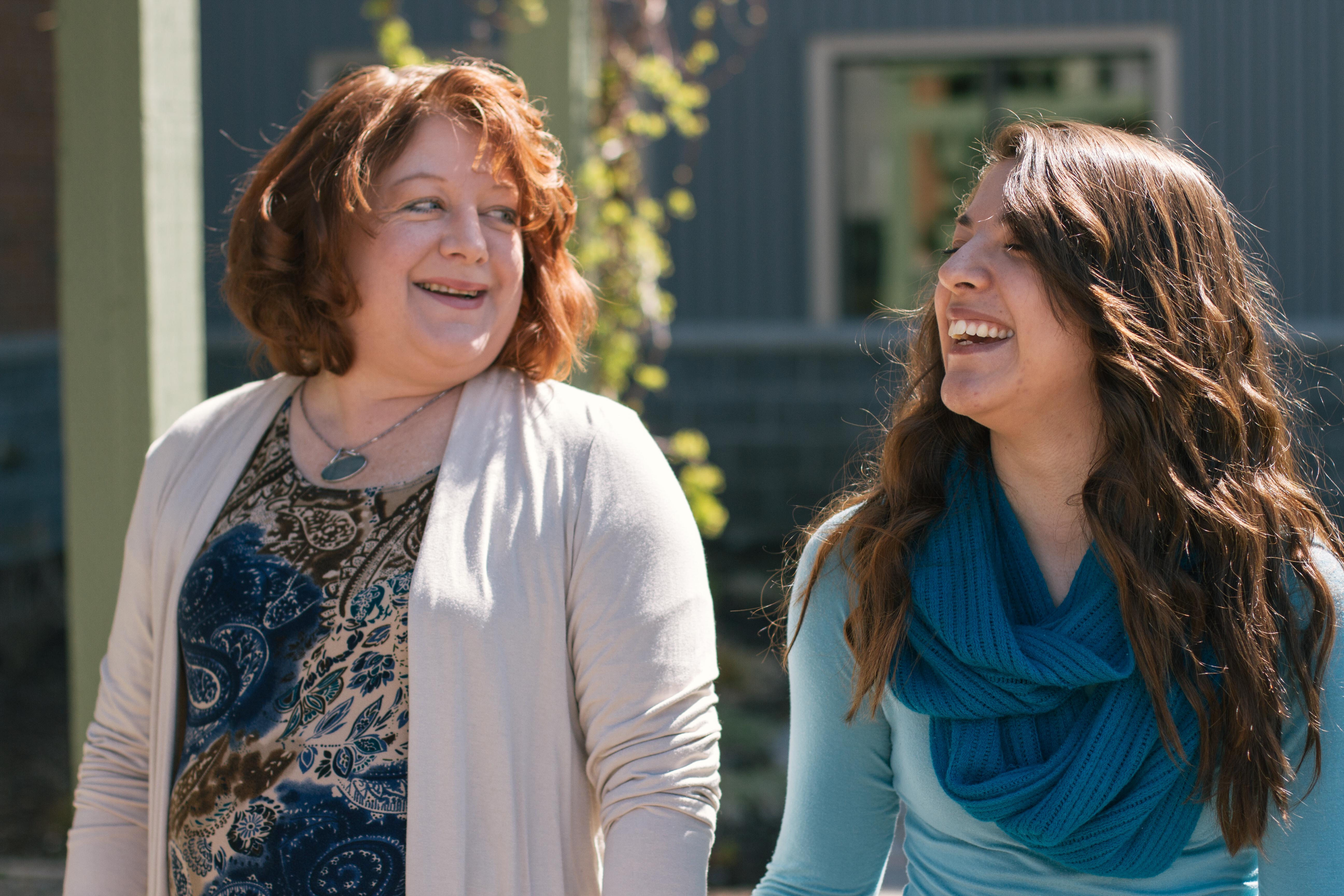2 min read
Gospel-Centered from the Start
“Let us hold unswervingly to the hope we profess, for He Who promised is faithful…Jesus Christ is the same yesterday, today, and forever.” (Hebrews...
2 min read
Leanne White, Content and Communications Specialist : October 1, 2025

“The enemy got his hooks into me early. I’d been using for roughly 40 years.”
Allen didn’t grow up with what he calls a strong faith. His parents were alcoholics, and at 12 years old, Allen started drinking and smoking. He and his sister would walk to the store for cigarettes and beer. With no consequences from the law and even notes from his parents for permission, it felt normal.
As an adult, Allen went through UGM’s recovery program, staying for about three to four months. After leaving, he quickly found a job, but within a week or two, he relapsed. It wasn’t long before he landed in jail. He spent another three to four months incarcerated, an experience that became a turning point for him. “When I was in jail, that was a rather rude awakening as far as the path my life was taking.”
When he decided to re-enter the program, he left everything in the rearview mirror. He even quit smoking. “Most people who relapse already have a plan to use again. I didn’t want that. I wanted a new life.”
Allen found the services and staff to be fantastic, both those who had moved on and those still serving. At UGM, participants don’t just receive care—they give it. Allen recalls working the front desk for his entire program. “They don’t let you get too comfortable. They put you in situations where you have to grow.” Supporting others helped him heal in return.
When asked what sets UGM apart from other recovery programs, Allen is clear: it’s the faith-based foundation and the longevity. Most other programs are 30, 60, or 90 days, but that’s not enough time to heal. UGM’s program, with its extended timeline and comprehensive structure, allows people to uncover the real reasons behind their addiction. “They teach you right from the start that drugs and alcohol are only symptoms.”
 Achieving and maintaining sobriety is an ongoing journey, and UGM equips participants with real tools like coping mechanisms and life strategies. “It’s like they hand you a bright, shiny toolbox. If you don’t know how to use the tools, you reach out to your brothers—those ahead and behind you in the program. You stay connected. You get plugged into a church.” He still uses the tools and skills he learned at UGM in his life and in his work.
Achieving and maintaining sobriety is an ongoing journey, and UGM equips participants with real tools like coping mechanisms and life strategies. “It’s like they hand you a bright, shiny toolbox. If you don’t know how to use the tools, you reach out to your brothers—those ahead and behind you in the program. You stay connected. You get plugged into a church.” He still uses the tools and skills he learned at UGM in his life and in his work.
Allen believes that if someone truly commits to the program despite the hardships—digs in every week, unearths their traumas, and surrenders it all to Christ—then lasting recovery is possible.
“This is how great God is,” Allen says. “Not only did He do 90% of the work I put into this program, He also restored relationships I thought were lost forever.” One relationship, once full of conflict, is now one of his strongest alliances. “It’s been astronomical.”
To every fellow donor and volunteer, Allen says: “Thank you—for everything you do and how you do it. You make recovery possible. Your generosity is what makes UGM stand out in the Pacific Northwest. You give people like me a chance to go through this program without worrying about food, shelter, or clothing.”
Those four steps, he says, will lead to deep, meaningful relationships far beyond small talk. “These are your brothers and sisters. You can talk about what’s really bothering you. And together, you’ll find your way through.”
Allen completed the program in 2022. “I’m content. I don’t know what’s next, and that’s okay. I’m going to enjoy who I am now. Wherever God takes me, that’s where I need to be. No second-guessing. No ‘what ifs.’ That just creates stress—and I don’t want that anymore. I pray before my feet hit the floor each morning and give it all to God.”
Now, Allen has a relationship with Christ that no one can take away. “That’s mine. It’s solid.”

2 min read
“Let us hold unswervingly to the hope we profess, for He Who promised is faithful…Jesus Christ is the same yesterday, today, and forever.” (Hebrews...

9 min read
To celebrate 75 years of serving the Inland Northwest, we are spending the year remembering our history and the faithfulness that built us and...

2 min read
In 2026, Union Gospel Mission Inland Northwest is approaching our 75th Anniversary! This is a milestone that invites gratitude and reflection, and...

“Stay consistent in their lives, even when they’re the hardest to love.” That, in a nutshell, is the key to caring for the children living with...

1 min read
“I was in a constant cycle of me, me, me, and that’s all it consisted of. I didn’t care who I hurt, who I stole from in order to get high.” Tim...

“I felt like she chose the alcohol over me.” Nicki Willis spent much of her life watching her mom, Darlene, sink into alcoholism. “I didn’t talk to...